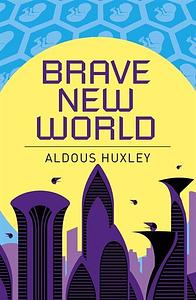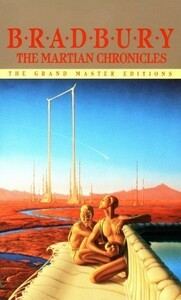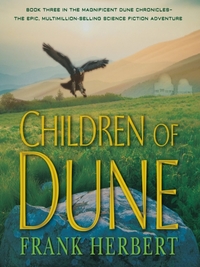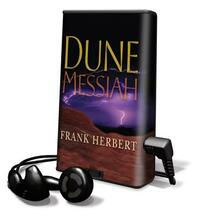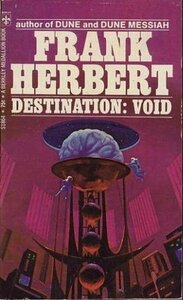You need to sign in or sign up before continuing.
Take a photo of a barcode or cover
aether's Reviews (111)
This book is amazing, a definite must-read for scifi fanatics. Herbert crafts a beautiful world full of complexities and subtleties that I could reread a dozen times and still not uncover everything. I watched the David Lynch movie version before reading it, and I think the movie was cast well. It gave me a mental image of all of the characters. End on a sharp note, but it does tie the book together!
Loved this book, such an interesting way of storytelling. I felt it was less about Mars and more about ourselves. Would recommend to anyone.
I actually put this book down for a few years about 2/3rds of the way into it. The reason being was that I just got tired of it; the plot wasn't moving forward quickly enough and not a whole lot was happening. It didn't seem like the story was going anywhere. Thankfully, I came back to it to finish it and after about 20 pages it got pretty amazing. Asimov's perspective on the unknown is beautiful. His ideas with regards to science fiction are refreshingly original, and his commentary on love and relationships is incredibly wise. I would suggest it, but it is difficult to get through the first portion of the book. It has a very large rising action, a tiny climax, and a very steep falling action. Not to say I was dissatisfied, but with all the build up I was expecting the resolution to be more drawn out. He has a little tribute to his Foundation series at the end too, love it.
Children of Dune continued along the threads of a story left untied by Dune Messiah. Again, Herbert's amazing diction and wordsmithing comes out through this book (on my kindle, I have over 100 highlights and notes!). As with Dune Messiah, he employs the mystery of prescience, but new to this book are mysteries of Fremen legend that become a very vital part of the story line. I was not as impressed by this story as I was with Dune Messiah because I felt that things were a little dragged out and everything came to an extremely quick climax at the very end. This was the same with Dune Messiah, however this book is remarkably longer so the effect is more pronounced. Not to say that nothing happened over great portions of the book; quite the opposite, almost every chapter had something to sufficiently further the plot. The problem was that Herbert gave visions, from almost the start of the book and then throughout the book, of later parts of the book. One particular one that he continued to emphasize didn't happen until almost 4/5ths of the way through (where he was making it seem like a MAJOR plot point). Undeniably it was, and granted this is a petty complaint, but a reason I feel it should be given a 4 out of 5 instead of the full 5 start. Great book, I'm excited to read the next in the series!
This sequel is an amazing addition to the Dune series. I have ready that people are more or less polarized on this novel, and should that be the case I am on the backing side. I felt like this book began to delve into the more philosophical and humanistic effects of prescience, as well as the darker side of a semi-tyrannical empire. Herbert does an excellent job of leaving clues all throughout the text; upon re-reading this rather short book, I was able to absorb so much more. Additionally, Herbert is such a good wordsmith that I have myriad quotes in this book highlighted. Sometimes his pre-chapter passages can be confusing, but many of the profound character-thoughts are exactly that: thought provoking. I would urge everyone to read this book, although it requires the investment of reading the first!
In this book, Wells uses atomic energy (barely even a concept in 1913, when it was written) as a window through which to describe his utopia. He expounds upon such topics as nationalism, authority, governments, and feminism/sexism. He takes an odd tactic, telling the story of a world from completely different perspectives each chapter. The book feels like a long series of opinions on aspects of society and where they would be in a utopia. The book ended rather abruptly, but left me satisfied. I have an improved perspective of societal interactions and what Wells believed society may become.
I find it interesting, though, his idea of a scientific future. He writes of pilots throwing atomic bombs out of atomic planes, which, I imagine, he believes to be very similar to the early single propeller open top planes of the 1910s. A pleasant, but initially confusing read. Definitely some heavy material that I will look upon again later in life. One of my favorite quotes: "Men who think in lifetimes are of no use in statecraft".
I find it interesting, though, his idea of a scientific future. He writes of pilots throwing atomic bombs out of atomic planes, which, I imagine, he believes to be very similar to the early single propeller open top planes of the 1910s. A pleasant, but initially confusing read. Definitely some heavy material that I will look upon again later in life. One of my favorite quotes: "Men who think in lifetimes are of no use in statecraft".
This book confused me. I was unable to follow portions of Destination: Void due to incoherent technobabble, but I feel like I was able to pick up the main discussion on consciousness. The Jesus Incident did not give me as much grace. I'm reading this series because I'm a Herbert fan, and this doesn't quite read like a Herbert novel. Where Dune's (or rather, the first three books') overarching exposition was on prescience and the future, the Jesus Incident had the same sort of monologues on godhood, consciousness, and 'the oneness of life'. It was much harder to grasp at what he was saying. One of the motifs that comes up often is the defining of something either by its opposite or against another background. Herbert does this with consciousness, life, and goodness. I found that a very interesting perspective.
Additionally, the end made nearly no sense. I am going to continue reading through the series with the hope that I will find some answers there, but I don't have high hopes. What is the purpose of the Scream Room? How was Jesus Ship's devil and Raja his own? What does the 'holy violence' have to do with the story? Was the scene in the gondola a tentacle-intercourse seen? What was the necessity/literary intent for including that?
In all I thought that there were excellent points made in the book and that the story was certainly something creative and unique. Thinking kelp! Herbert still has an amazing ability to wordsmith and that appears in this book as well.
In all I thought that there were excellent points made in the book and that the story was certainly something creative and unique. Thinking kelp! Herbert still has an amazing ability to wordsmith and that appears in this book as well.
"Does it matter [whether Jesus was God]? Is the lesson diminished because the history that moves you is fiction? The incident which you just shared is too important to be debated on the level of fact or fancy. [Jesus] lived. He was the ultimate essence of goodness. How could you learn such an essence without experiencing its opposite?"
-Ship
An amazing read. Would 100% recommend for anyone pondering artificial intelligence. Herbert, amidst technobabble, brings up some amazing philosophical discussion on topics such as cloning, cybernetic minds, and (something I have found unique among any other AI book I've read) artificial consciousness as a separate entity from artificial intelligence. While this book is out of print, e-copies of it can be found. It is a short and incredibly exciting read.

